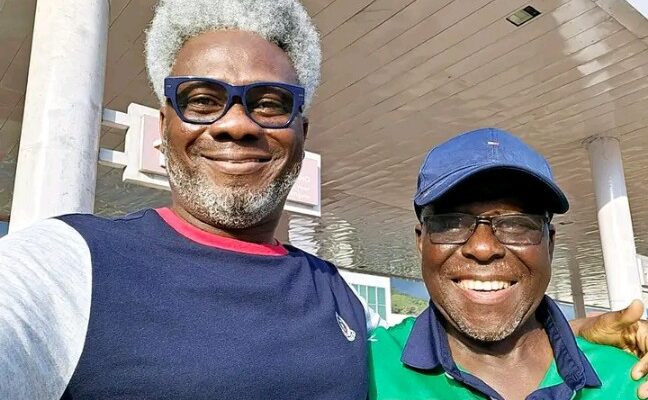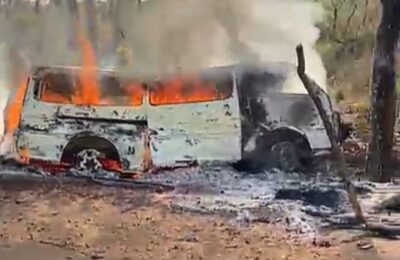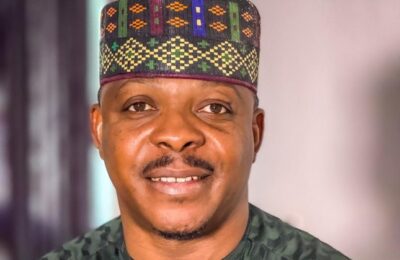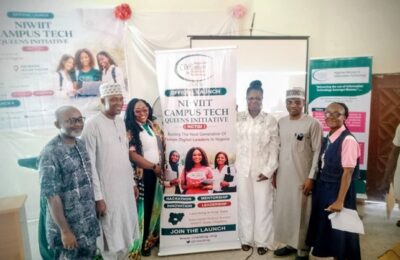My destination was the tennis court, where I observe a daily routine of keeping fit after close of official business – as much as circumstances permit.
So, yesterday evening, I stopped by a filling station on Murtala Mohammed Express Way to buy fuel to my car. I alighted and stood by the dispensing machine as the attendant performed his duty.
Then, a car pulled up and on the line at the other side to be attended to by the same attendant serving me. I looked at the direction and saw a man came out from the driver side. There was no other occupant in the car. I recognised him and immediately greeted him: “Good evening, Your Excellency”. He responded with his usual conviviality and rare disarming smile: “Good evening, sir”, he responded to my pleasantry and walked towards me as I moved in his direction. He was smartly dressed and probably going to a sport club or a resort too. He gestured to have a handshake and I responded courteously. Wada was Governor of my home state of Kogi from 2012-2016, just before the years of the locust. May affliction not arise again.
We had a brief chat. “I am from Kogi State, Ogidi, in Ijumu Local Government”, I civilly and briefly made him an interlocutor. “Haaa… I know your place. I have been there. Very great people. They are wonderful”.
It was the third time I have heard such compliment about Yorubas of Kogi West. The first was from Dr. Tunde Adegbola, the inimitable culture architect and ‘inventor’ of the ‘modern’ Yoruba language keyboard, the Director of African Languages Technology Initiative (Alt-I), who has become a notable consultant to Google, Microsoft and so many other entities on translation of many African languages.
In 2004 when I met Dr. Adegbola at the Nigeria Community Radio Coalition conference and I introduced myself, he was excited by the way I pronounced my surname. So he asked me the part of Nigeria I came from. As I mentioned my paternal place, he responded with speed, “I have never seen a stupid man from that space. You guys are a special breed and you deserved to be studied specially”.
The second time I would get a similar honour was in 2011 when I was taken to the Vice President, HE Namadi Sambo. I was being considered as his Special Adviser on Communication. Baba Tanko Yakasai, veteran socialist and rare politician, right from the First Republic, who took me there without knowing where I ‘came from’, even though we had interacted for about 20 years, heard me mention the part of Kogi I hailed from, and said, “Haa… you are a blessed people”. Of course, as in the case of Adegbola and Wada, I thanked him very sincerely and continued my chat with HE Sambo.
Not everyone’s smile and laughter is freely and sincerely offered but Wada offers ready-made, honest and free smiles, and anyone who knows him would attest to my assertion. But nothing distinguishes Wada like his modesty. An astonishing former pilot in the glorious days of Nigeria Airways, Wada is rarified in good spiritedness, very princely, avuncular and humane, very much like his younger brother, the world-renowned gynaecologist and fertility expert and founder/CEO of Nisa Premier Hospital, Ibrahim Wada.
The last time I saw a former Governor displayed such modesty as Governor Wada, it was HE Adeniyi Adebayo, a former Governor of Ekiti State and it was in Asokoro at a supermarket. After we exchanged pleasantries, I found that he drove himself there, got the items he wanted, paid for them and drove off without watching his back. Not every former governor or political office holder can move freely because they did not humanise their tenure, rather they inflicted pains on the people whose condition they swore to make better.
I was delighted to see Governor Wada, 74, though he did not look like a septuagenarian. I was particularly gratified that Nigeria also has her own stories of modesty. So, it is not only in Malaysia that we have people of power fly commercial airlines and chose seats in the economy class, some former governors in Nigeria also drive themselves to filling stations and elsewhere, and they take their turns to refuel their cars or pay for their groceries.
Dear friends, have a great week.
— Omoniyi Ibietan, PhD.




